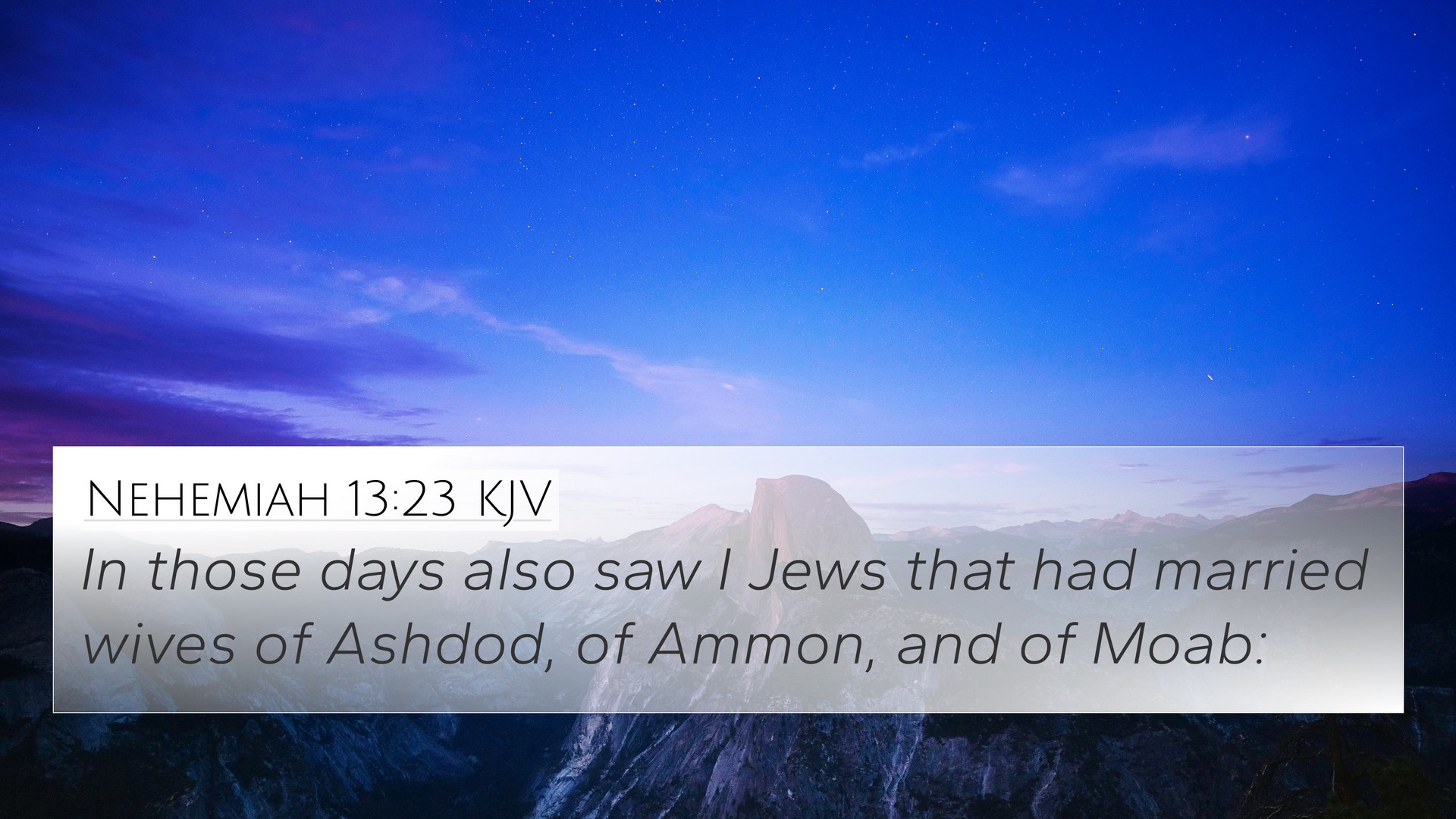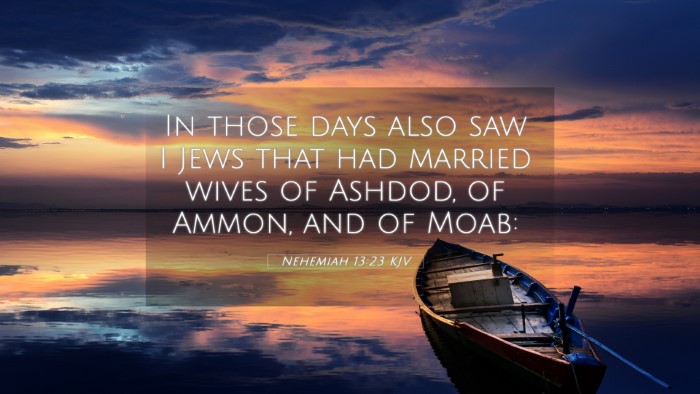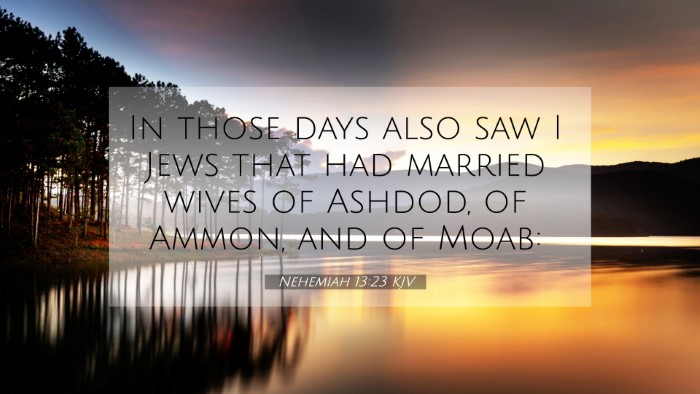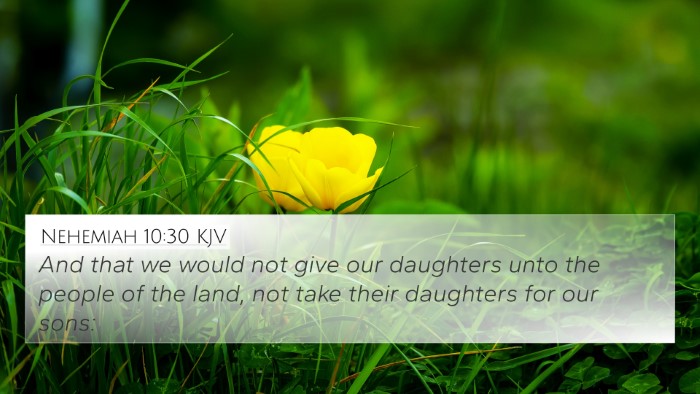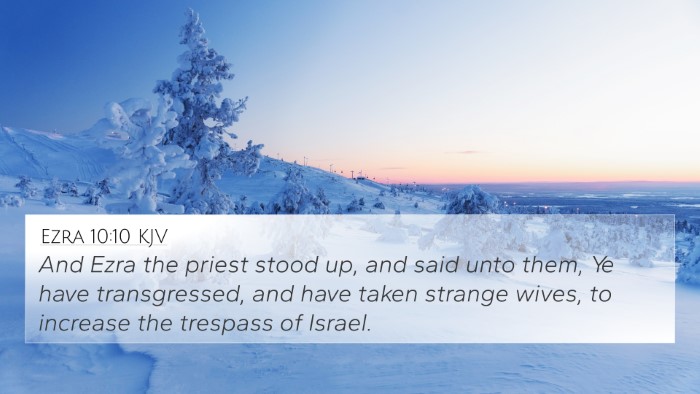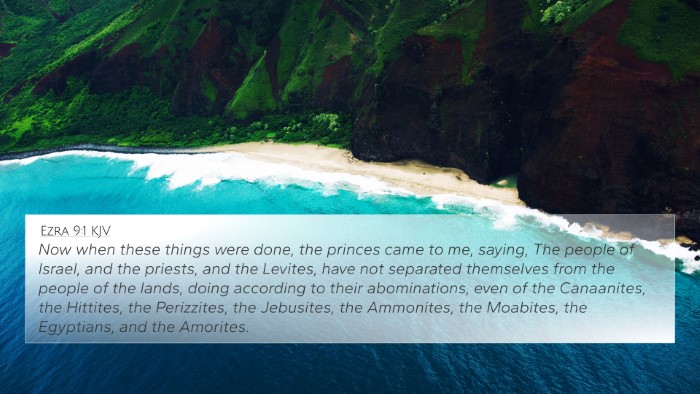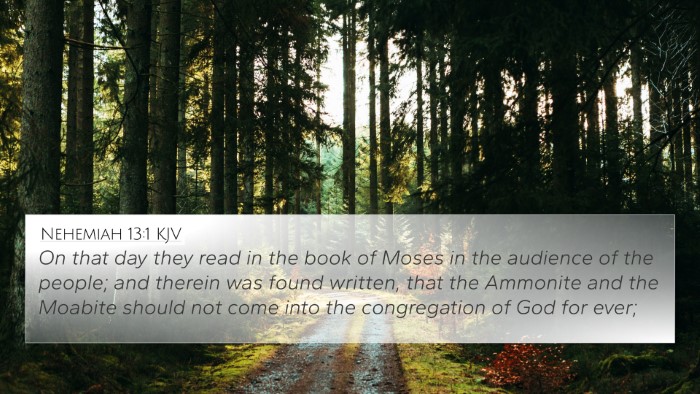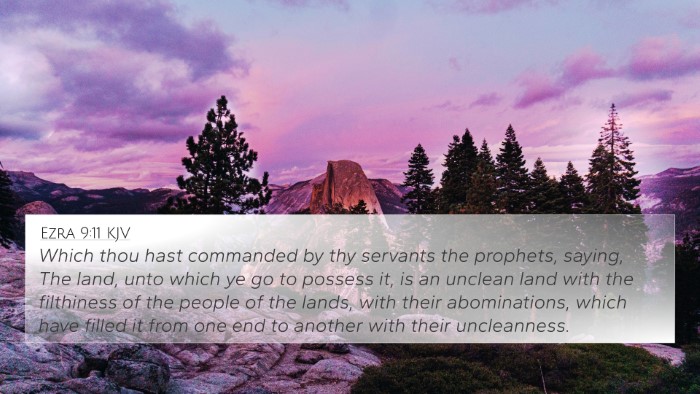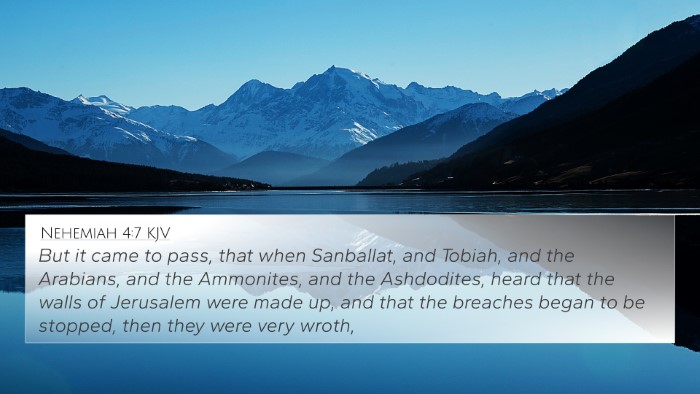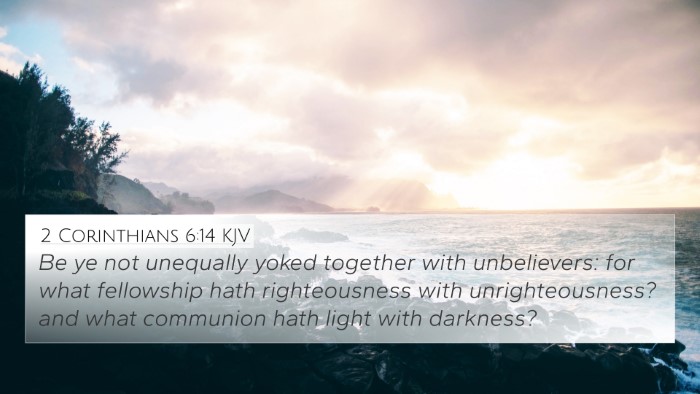Understanding Nehemiah 13:23
Nehemiah 13:23 states:
"In those days also I saw Jews that had married wives of Ashdod, of Ammon, and of Moab."
Summary of Meaning
This verse highlights the issue of intermarriage between the Israelites and surrounding nations, specifically mentioning the peoples of Ashdod, Ammon, and Moab. Nehemiah's observation indicates a concern for the preservation of Jewish identity and adherence to the commandments of God.
Commentary Insights
-
Matthew Henry's Commentary:
Henry emphasizes the danger of the Israelites marrying foreign women, which could lead them away from the worship of Yahweh. He underscores that such associations could compromise the spiritual integrity of the community, pointing to the parallels in the directives given in the Mosaic Law against such unions.
-
Albert Barnes' Notes:
Barnes elaborates on the historical context, explaining that these marriages not only caused moral and spiritual decline but also integrated pagan practices into the Israelite community. He connects this occurrence with other biblical instances where similar behaviors led to national calamities.
-
Adam Clarke's Commentary:
Clarke notes the implications of these marriages on future generations and how they could introduce foreign religious practices. He reflects on the wisdom of maintaining a distinct heritage and the importance of obedience to God's covenant.
Cross-Referencing Biblical Texts
Nehemiah 13:23 connects thematically with various other scriptures regarding the importance of maintaining spiritual purity. Below are key verses that relate to this theme:
- Deuteronomy 7:3-4: Prohibits intermarriage with pagan nations to prevent turning away from God.
- Ezra 9:1-2: Details Ezra's dismay over the Israelites' intermarriage and its implications for faith.
- 1 Kings 11:1-4: Chronicles Solomon's marriages and how they led him to idolatry.
- 2 Corinthians 6:14: Advises against being unequally yoked with unbelievers, a principle that echoes through the ages.
- Malachi 2:11: Speaks on faithlessness in marriage and its detrimental effects on the covenant community.
- Neh 10:30: Reiterates the commitment of the people not to marry outside of Israel to uphold their faith.
- Acts 16:1-3: Illustrates the New Testament commitment to maintaining core beliefs while engaging with the world.
Thematic Connections
In Nehemiah’s time, the issue of intermarriage highlights a broader theological theme of purity, fidelity, and identity. This theme resonates through both the Old and New Testaments, assisting in understanding God's consistent call for holiness among His people. The Bible consistently warns against relationships that compromise one's faith:
- Scriptural Cross-Referencing: For deeper insight, cross-reference can amplify understanding. Tools such as a bible concordance or bible cross-reference guide are invaluable in performing a cross-reference Bible study.
- Inter-Biblical Dialogue: Through examining the connections between bible verses, readers can glean the continuity of God's revelation concerning His expectations for relationships and community integrity.
Practical Application
Understanding Nehemiah 13:23 within its context encourages believers today to consider the influence of relationships and alliances. Maintaining spiritual integrity remains crucial, as does engaging thoughtfully with scripture. To navigate these themes effectively, here are suggestions:
- Utilize tools for bible cross-referencing to explore related themes.
- Engage in comparative bible verse analysis to better understand God’s desired outcomes for His people.
- Practice cross-referencing bible study methods to deepen theological insights and practical applications.
Conclusion
Nehemiah 13:23 serves as a poignant reminder of the perennial struggle to maintain true faithfulness in our spiritual relationships. By exploring the implications and applications of this verse through interdisciplinary biblical cross-referencing, believers can enrich their understanding of God's call towards holiness and community.
